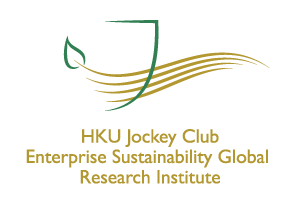
HKU Jockey Club Enterprise Sustainability Global Research Institute
World-Class Hub for Sustainability
Event Recap:
CASI Sustainability Forum: Building Capacity for a Transition Finance Ecosystem in Asia
CASI Sustainability Forum: Building Capacity for a Transition Finance Ecosystem in Asia
On September 12, 2025, marking the conclusion of the Hong Kong Green Week, “CASI Sustainability Forum: Building Capacity for a Transition Finance Ecosystem in Asia” was successfully held. Co-organized by the Capacity-building Alliance of Sustainable Investment (CASI), the HKMA Infrastructure Financing Facilitation Office (IFFO), HKU Jockey Club Enterprise Sustainability Global Research Institute (“the Institute”), and the CFA Institute, the forum brought together over 150 in-person and nearly 300 online participants. It provided a platform for discussing practical strategies to enhance capacity building essential for Asia’s green transition, underscoring the region’s vital role as an engine of global economic growth.
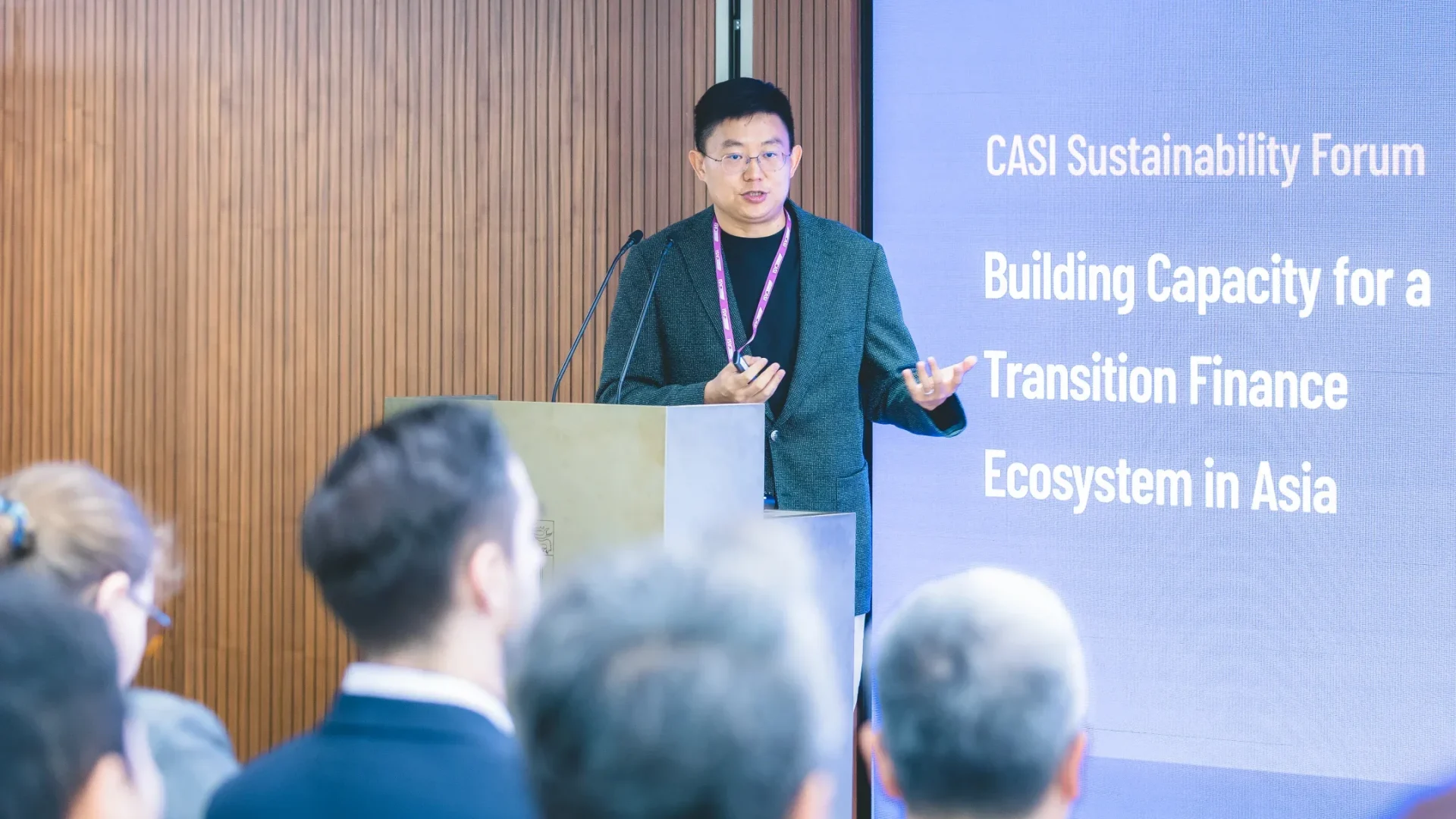
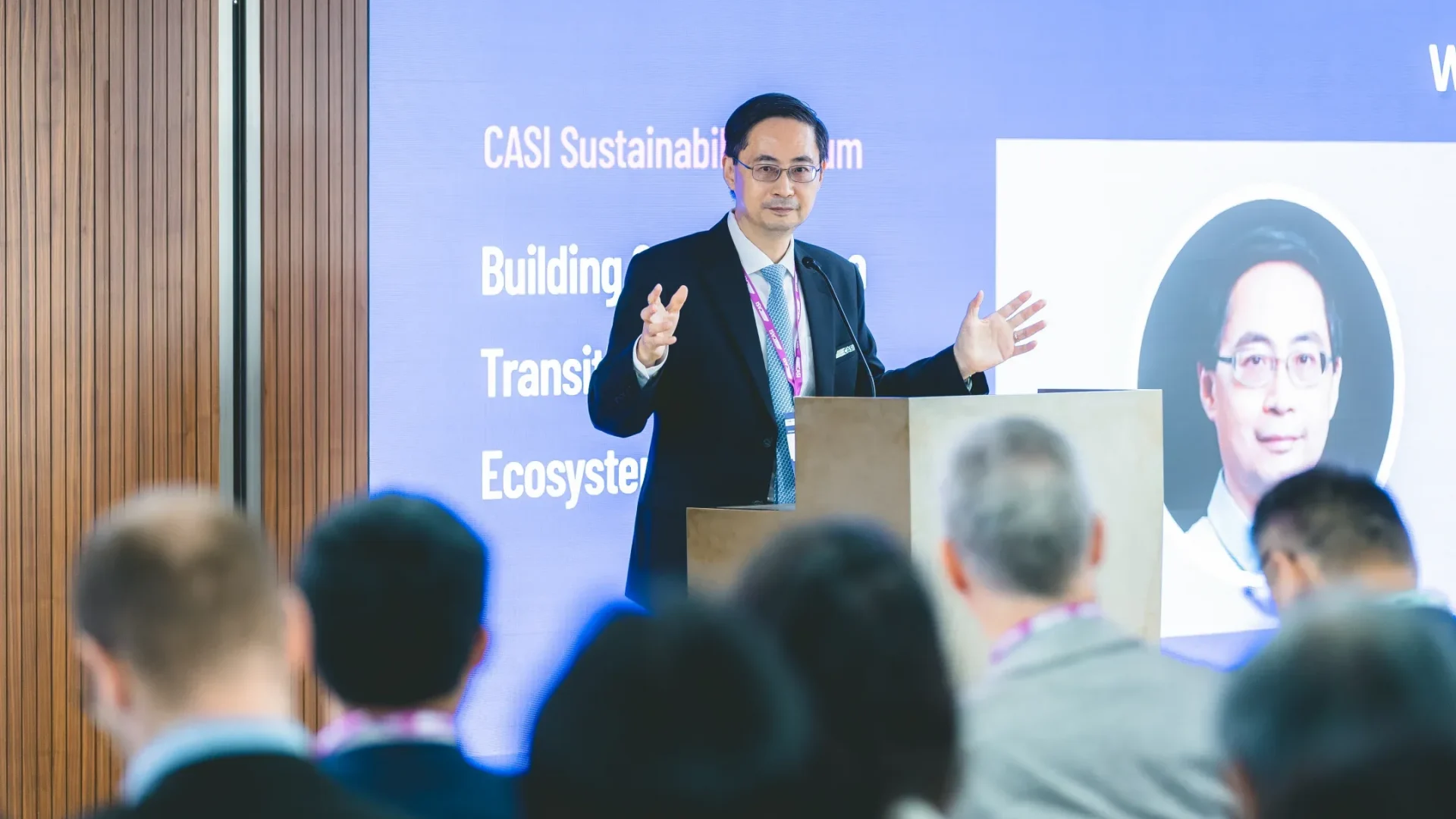
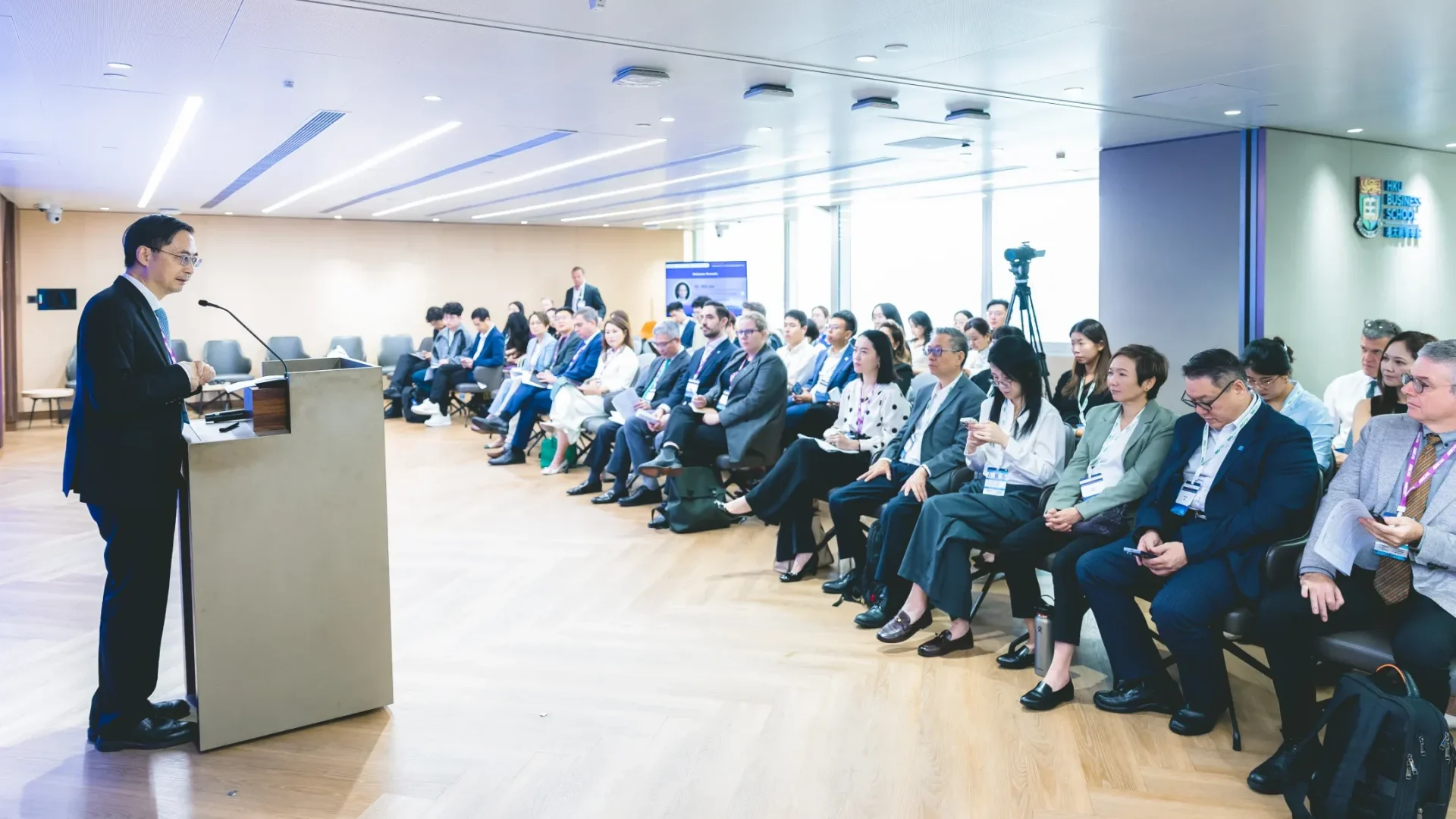
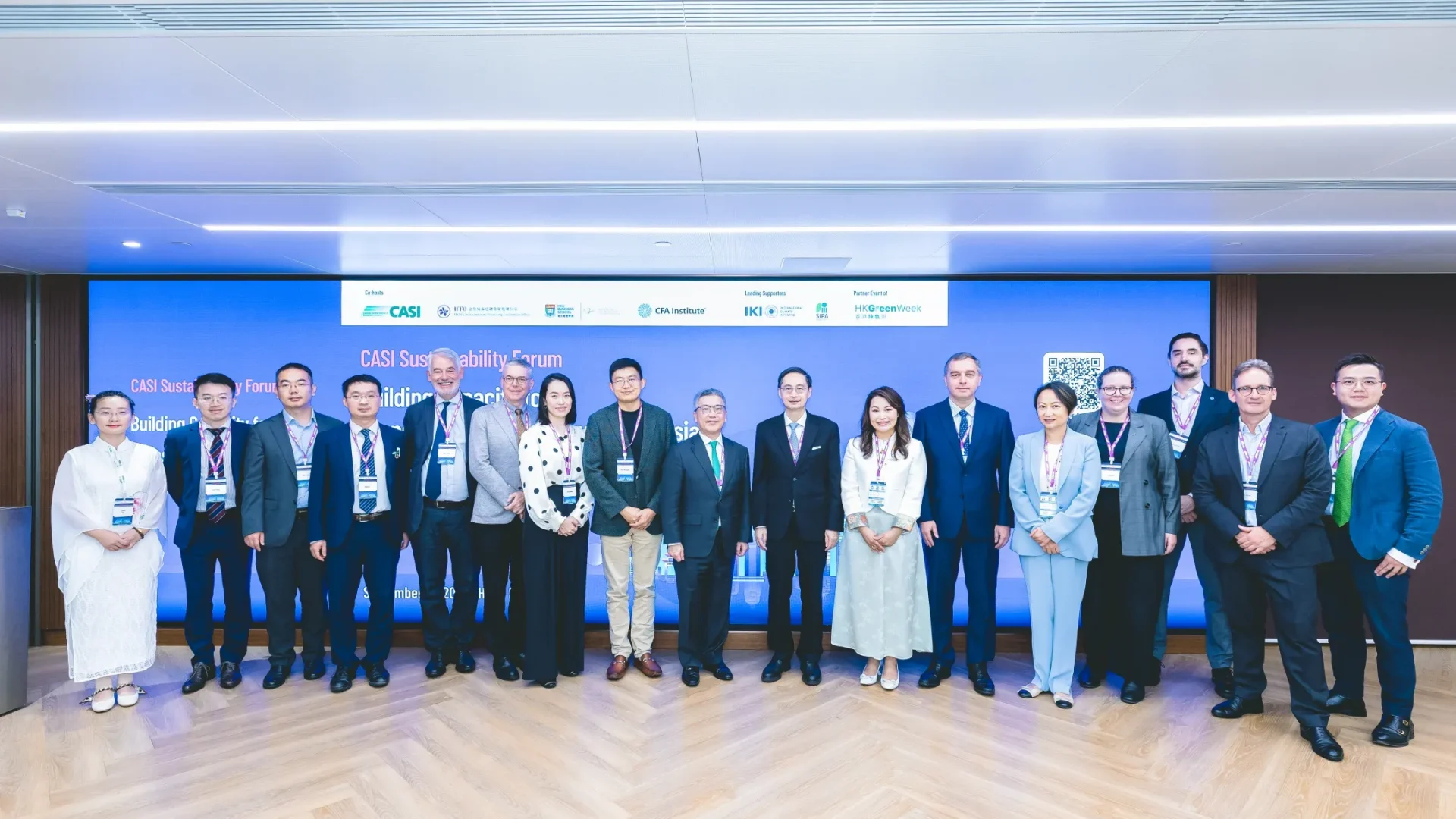
Key Pathways for Transition Finance in Asia
Given Asia’s reliance on fossil fuels and the mounting pressure on hard-to-abate sectors to transform, transition finance has emerged as a crucial mechanism for enhancing the region’s economic stability and long-term resilience. The forum’s in-depth discussions highlighted five key directions to advance transition finance across Asia:
-
- Incentivize Leaders, Support Laggers. An effective low-carbon transition requires well-designed mechanisms that not only reward leading companies, for instance, through lower financing costs, but also provide concrete support to those lagging behind to reduce transition risks.
- Promote and Adopt Clear Transition Taxonomies. A unified and standardized classification system can minimize ambiguity, lower the cost of identifying eligible transition activities, and direct capital toward economic activities genuinely committed to decarbonization.
- Leverage Open-Source Tools to Ease Financing Barriers. Companies, especially SMEs, can use government-led carbon accounting platforms and other open-source tools to develop transition plans, facilitating easier access to transition financing.
- Harness the Catalytic Role of Core Supply Chain Enterprises. Priority support should be given to large enterprises capable of driving change across their entire supply chains. Green supply chain finance can then extend this support to SMEs within the value chain, assisting those most in need of transition.
- Strengthen Tangible Policy Incentives. Measures such as central bank relending facilities, capital relief programs, interest subsidies, and the promotion of low-cost clean energy in industrial parks play a crucial role in accelerating the transition.
Opening Remarks

Dr. Ma Jun
Chairman of CASI
Dr. Ma emphasized that despite global challenges in sustainable finance, Asia has become the focal point for concrete climate action. The region now accounts for 70% of the world’s new renewable energy capacity and half of all related investments, highlighting its pivotal role in the global energy transition. However, he also noted that an 80% financing gap for renewables in Asia reflects significant challenges in project development and capital mobilization.
Against this backdrop, Dr. Ma highlighted that since its establishment in 2023, CASI has expanded its network to 70 member institutions and trained over 6,500 professionals across more than 90 countries and regions. He underscored CASI’s growing role as a knowledge hub that bridges global best practices with the specific needs of emerging markets.
Prof. He expressed the delight for the Institute being the co-organizer of the CASI Sustainability Forum, which contributes to the advancement of sustainable finance in the region and helps establish a robust foundation for global collaboration. He highlighted his two representative academic research outcomes that demonstrate practical approaches to promoting corporate sustainability.
In one project, carried out in collaboration with Ant Group, a subtle “green nudging” intervention—setting “no utensils” as the default option on a food delivery platform—led to an increase of over 20 percentage points in user adoption of this eco-friendly option, implemented at minimal cost. In another study, social media was utilized to facilitate real-time public monitoring of corporate pollutant discharge, resulting in a reduction of compliance violations by more than 60%.
Prof. He used these cases to illustrate how academic research can provide scientific evidence, actionable pathways, and scalability potential to support sustainability capacity-building. He extended a warm invitation for partnerships with businesses to enhance such capacities and promote a science-based transition toward a low-carbon future, benefiting both individual enterprises and broader society.

Prof. Guojun He
The Hong Kong Jockey Club Professor in Economics, HKU Business School; Director of HKU-Jockey Club Enterprise Sustainability Global Research Institute

Dr. Ma Jun
Chairman of CASI
Dr. Ma emphasized that despite global challenges in sustainable finance, Asia has become the focal point for concrete climate action. The region now accounts for 70% of the world’s new renewable energy capacity and half of all related investments, highlighting its pivotal role in the global energy transition. However, he also noted that an 80% financing gap for renewables in Asia reflects significant challenges in project development and capital mobilization.
Against this backdrop, Dr. Ma highlighted that since its establishment in 2023, CASI has expanded its network to 70 member institutions and trained over 6,500 professionals across more than 90 countries and regions. He underscored CASI’s growing role as a knowledge hub that bridges global best practices with the specific needs of emerging markets.

Prof. Guojun He
The Hong Kong Jockey Club Professor in Economics, HKU Business School; Director of HKU-Jockey Club Enterprise Sustainability Global Research Institute
Prof. He expressed the delight for the Institute being the co-organizer of the CASI Sustainability Forum, which contributes to the advancement of sustainable finance in the region and helps establish a robust foundation for global collaboration. He highlighted his two representative academic research outcomes that demonstrate practical approaches to promoting corporate sustainability.
In one project, carried out in collaboration with Ant Group, a subtle “green nudging” intervention—setting “no utensils” as the default option on a food delivery platform—led to an increase of over 20 percentage points in user adoption of this eco-friendly option, implemented at minimal cost. In another study, social media was utilized to facilitate real-time public monitoring of corporate pollutant discharge, resulting in a reduction of compliance violations by more than 60%.
Prof. He used these cases to illustrate how academic research can provide scientific evidence, actionable pathways, and scalability potential to support sustainability capacity-building. He extended a warm invitation for partnerships with businesses to enhance such capacities and promote a science-based transition toward a low-carbon future, benefiting both individual enterprises and broader society.
Keynote Speech Takeaways
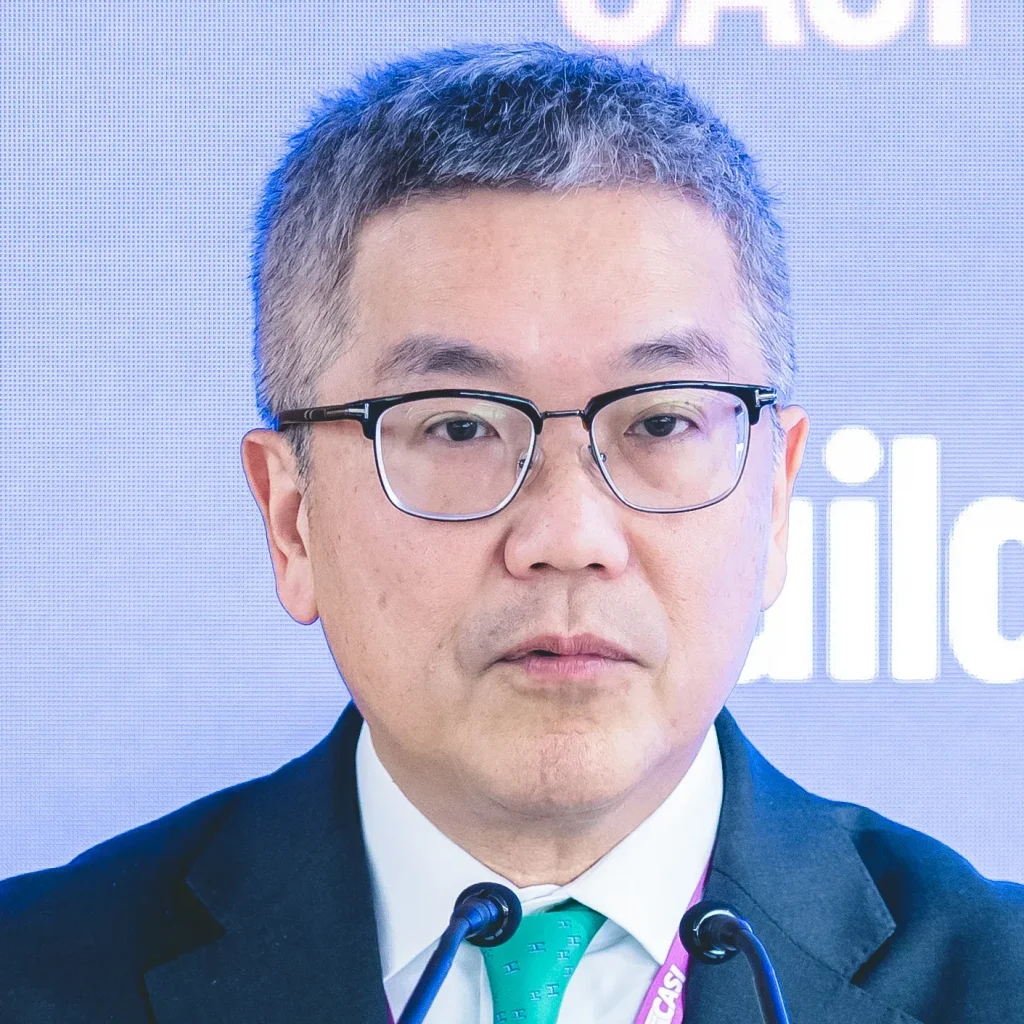
Mr. Arthur Yuen
Deputy Chief Executive of the Hong Kong Monetary Authority (HKMA)
Faced with increasingly severe extreme weather events, the transition to a sustainable future has never been more urgent. Asia, which contributes more than half of global carbon emissions, is also among the regions most vulnerable to climate change—making its transition challenges particularly acute. According to the International Monetary Fund (IMF), the region requires at least $1.1 trillion in climate investment annually, yet faces a funding shortfall of approximately $800 billion. To tackle these challenges systematically, the HKMA is committed to addressing the “four major gaps” in the market, with the goal of building an efficient and resilient transition finance ecosystem.
- Standardization Gap
The HKMA has launched the “Hong Kong Taxonomy for Sustainable Finance” and continues to expand its coverage to more sectors and economic activities. For the first time, it offers clear technical screening criteria to identify transition activities.
- Readiness Gap
The HKMA has published industry good practice cases and is developing more formal guidance to assist banks in assessing and managing client risks throughout the transition process.
- Information Gap
Hong Kong has announced a clear timeline for adopting the ISSB standards, enhancing the transparency and consistency of corporate climate disclosures and ensuring the availability of high-quality, comparable data for the market.- Talent Gap
While sustainable finance is regarded as the largest business growth opportunity, ESG knowledge remains the most critical skills gap for the future. To address this, the “Pilot Green and Sustainable Finance Capacity Building Support Scheme” has subsidized training for over 2,600 professionals, systematically strengthening expertise in the sector.
Mr. Paul Moody began by highlighting the “paradox” of Asia’s economic development: the very sectors that have driven its growth over the past three decades—manufacturing, shipping, and agriculture—are also among the world’s largest sources of carbon emissions.
Today, Asia must forge a new growth path amid a warming planet. Transition finance targets hard-to-abate industries that cannot turn green overnight. Their decarbonization journey is long, uncertain, and costly. Whether supporting the managed phase-out of coal-fired power plants or enabling shipping fleets to adopt zero-carbon fuels, transition finance can serve as a critical bridge between the high-emission “today” of carbon-intensive industries and the net-zero “tomorrow”—provided such efforts are scientifically grounded and rigorously implemented.
Yet, transition finance in Asia faces multiple challenges: fragmented taxonomy standards, a lack of reliable emissions baselines and sectoral decarbonization pathways, as well as limited expertise among financial institutions, regulators, and companies in assessing complex transition plans. Despite these hurdles, homegrown solutions are gaining momentum. India's draft climate finance taxonomy, Singapore's blended finance partnerships, Indonesia's global carbon market integration, and ASEAN's regional transition guidelines all signal a growing consensus around credible transition finance.
With its deep capital markets, global connectivity, and strong regulatory reputation, Hong Kong is poised to become not only a green finance hub but also a centre for “verification and assurance” in transition finance—helping shape and lead the global sustainable development agenda.

Mr. Paul Moody
Managing Director, Global Partnerships & Client Solutions, CFA Institute

Mr. Arthur Yuen
Deputy Chief Executive of the Hong Kong Monetary Authority (HKMA)
Faced with increasingly severe extreme weather events, the transition to a sustainable future has never been more urgent. Asia, which contributes more than half of global carbon emissions, is also among the regions most vulnerable to climate change—making its transition challenges particularly acute. According to the International Monetary Fund (IMF), the region requires at least $1.1 trillion in climate investment annually, yet faces a funding shortfall of approximately $800 billion. To tackle these challenges systematically, the HKMA is committed to addressing the “four major gaps” in the market, with the goal of building an efficient and resilient transition finance ecosystem.
- Standardization Gap
The HKMA has launched the “Hong Kong Taxonomy for Sustainable Finance” and continues to expand its coverage to more sectors and economic activities. For the first time, it offers clear technical screening criteria to identify transition activities.
- Readiness Gap
The HKMA has published industry good practice cases and is developing more formal guidance to assist banks in assessing and managing client risks throughout the transition process.
- Information Gap
Hong Kong has announced a clear timeline for adopting the ISSB standards, enhancing the transparency and consistency of corporate climate disclosures and ensuring the availability of high-quality, comparable data for the market.- Talent Gap
While sustainable finance is regarded as the largest business growth opportunity, ESG knowledge remains the most critical skills gap for the future. To address this, the “Pilot Green and Sustainable Finance Capacity Building Support Scheme” has subsidized training for over 2,600 professionals, systematically strengthening expertise in the sector.

Mr. Paul Moody
Managing Director, Global Partnerships & Client Solutions, CFA Institute
Mr. Paul Moody began by highlighting the “paradox” of Asia’s economic development: the very sectors that have driven its growth over the past three decades—manufacturing, shipping, and agriculture—are also among the world’s largest sources of carbon emissions.
Today, Asia must forge a new growth path amid a warming planet. Transition finance targets hard-to-abate industries that cannot turn green overnight. Their decarbonization journey is long, uncertain, and costly. Whether supporting the managed phase-out of coal-fired power plants or enabling shipping fleets to adopt zero-carbon fuels, transition finance can serve as a critical bridge between the high-emission “today” of carbon-intensive industries and the net-zero “tomorrow”—provided such efforts are scientifically grounded and rigorously implemented.
Yet, transition finance in Asia faces multiple challenges: fragmented taxonomy standards, a lack of reliable emissions baselines and sectoral decarbonization pathways, as well as limited expertise among financial institutions, regulators, and companies in assessing complex transition plans. Despite these hurdles, homegrown solutions are gaining momentum. India's draft climate finance taxonomy, Singapore's blended finance partnerships, Indonesia's global carbon market integration, and ASEAN's regional transition guidelines all signal a growing consensus around credible transition finance.
With its deep capital markets, global connectivity, and strong regulatory reputation, Hong Kong is poised to become not only a green finance hub but also a centre for “verification and assurance” in transition finance—helping shape and lead the global sustainable development agenda.
Summary
In the transition toward a low-carbon future in Asia, capacity building in sustainable finance acts as both a critical catalyst for regional decarbonization and a central mechanism for tackling climate change and fostering inclusive growth. As an international financial hub, Hong Kong, supported by its mature capital markets, globally integrated regulatory framework, and open economy, is increasingly recognized as a pivotal player in advancing green finance capacity building throughout the region.
Hong Kong is uniquely positioned to enhance its role as a bridge by uniting academic research and industry expertise to create cross-sector collaborative platforms. Such initiatives can accelerate capacity development, promote the alignment of standards, and pilot innovative approaches in sustainable finance—thereby helping Asian nations achieve an equitable and climate-resilient transition in line with global goals.
As a co-organizer of this forum, the Institute reaffirms its commitment to serving as an open platform for dialogue and cross-sector collaboration. Grounded in rigorous research, we will continue to translate cutting-edge insights into practical, actionable solutions, foster deeper synergies among industry, academia and broader communities, and actively support the adoption of tangible corporate sustainability practices.